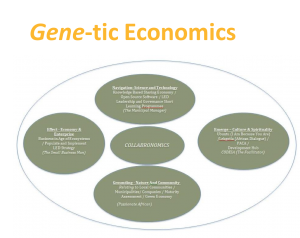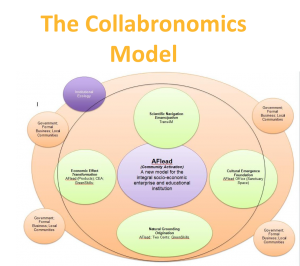Calling: Unifying local government, the private and business sectors as well as civil society to co-create new means of economic and social growth
The burning issue underlying the implementation of local economic development in South Africa is that government has failed in taking an integrated approach to working with citizens and groups within the community in order to find sustainable ways to meet their social, economic and material needs and improving the quality of their lives. Current policies do not take into account the diverse cultural nature of the various geographical jurisdictions. Also, input from local communities is not acknowledged enough to evoke collective potential and possibilities.
Innovation Ecosystem: Purposefully activating an ecosystem and in the local South African government milieu
Collectively, AFlead’s activated community aims at influencing governmental policy making and business procurement procedures. AFlead facilitates the integration of governmental policies with corporate supply chain needs and grass-roots innovative enterprise development. For his research, Dr Emil Nothnagel has activated his community Trans4M, Clean Energy Africa, GreenSkills Consulting and Two Cents to outline a new model for the development of AFlead, as an integral socio-economic enterprise and educational institution (Figure 1). This model will also facilitate his community activation initiatives in order for him to collectively take responsibility for releasing the GENEius and social innovation into not only South Africa, but also into Africa.
CEA operates within the green economy sphere. The company was established to provide the African continent with appropriate solutions for alternative energy generation, power consumption and low-carbon energy alternatives. The strategy they use is to identify and develop potential energy opportunities through which under-utilised resources can be converted into energy and where additional energy efficiencies can be realised.
GreenSkills Consulting is a women-owned socio-tech enterprise that focusses on developing women in the use of technology, innovative tools, data systems and business intelligence to ultimately transform themselves and their businesses. This enterprise is committed to facilitating women’s participation in uplifting the status quo of gender equality, equity and the empowerment in relation to their specific leadership roles within organisations, municipalities and communities.
Two Cents actively evolves community engagement through development communication methodologies. This small enterprise engages stakeholders, establishes conducive environments, assesses risks and opportunities and promotes information exchanges to bring about positive social change. Two Cents’ techniques include information dissemination and education, behaviour change, social marketing, social mobilisation, media advocacy, communication for sustainable development and community participation.
Integral Innovation: Renewing current methodology for local economic development into an approach that includes the crucial aspects of social development (with a specific grounding in African culture) for a renewal in the African economy
Emil Nothnagel’s goal is to use ÁFlead’s four product offerings as a foundation for his research into integral development. On an inner-outer, local-global path for societal renewal, the product offerings will evolve into a transformed framework for integral development on the African continent. This approached is called Collabronomics (Figure).
 An outline of the four AFlead products:
An outline of the four AFlead products:
Local Economic Development Maturity Assessment: This tool currently measures the self-awareness of local government structures for becoming powerful game changers in economic policy making and strategy development.
Local Economic Development Capacity Building Programme: Using the outcomes of the maturity assessment, Dr Nothnagel tailor makes a training programme to capacitate the governance structures of small towns and metropolitan municipalities in their roles and responsibilities to create an enabling environment for informed policy making and strategy development.
Local Economic Development Participatory Appraisal of Competitive Advantage (PACA): Dr Nothnagel uses this tool to facilitate the same group of people in determining what makes their community or town exceptional and to grow their economies to thrive from its uniqueness.
Local Economic Development Population and Implementation of Strategy: Emil Nothnagel now facilitates the same individuals from the PACA process in applying their newly established skills and understanding of the economy of their particular town or metro, supported by the insight into their competitive advantage and their uniqueness to populate a local economic strategy.
Integral Impact: Establishing an Integral Educational Institution towards Local and Green Economic Development on the African continent
The purpose and cultural applicability of the AFlead products will be defined more clearly and will evolve into integrated offerings for societal renewal. The research-to-innovation method seeks to develop AFlead into an authentically transformative Integral Educational Institution. AFlead will actualise a co-learning programme which incorporates face-to-face interaction, as well as an online portal for continuous sharing. The programme will be adapted for each culturally-sensitive geographical area where it will find its ecosystemic home – co-creating with all levels of South African society from grassroots level through to regional and national. Based on feedback and co-learning through the local, South African programme, global programmes will be developed that adapt to socio-economic environments on the rest of Africa.
The programme will not only provide a platform for transformative education in the public sector, but will also facilitate the creation of partnerships with organisations in the private sector, as well as small and medium enterprises and grassroots entrepreneurships. Together these partnerships will look at the imperatives of social innovation.


